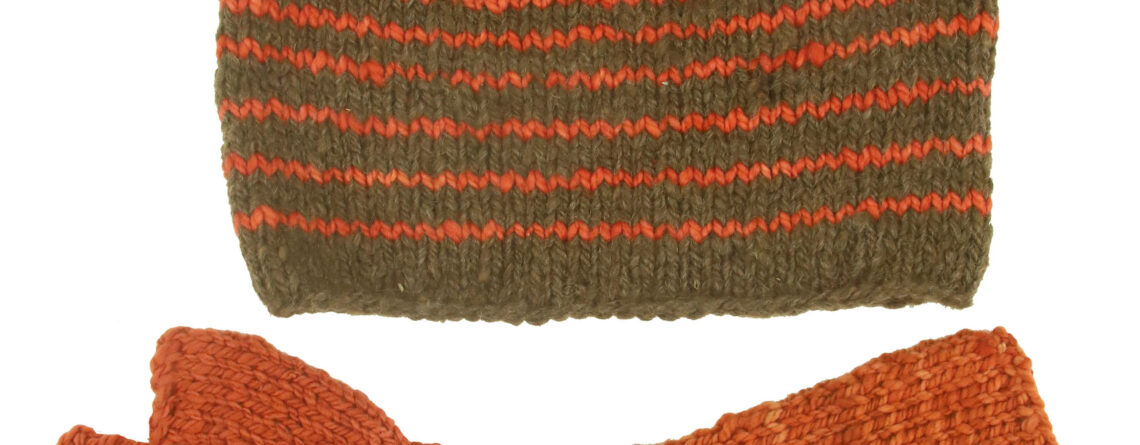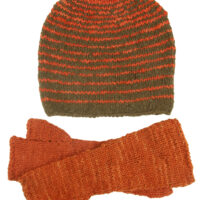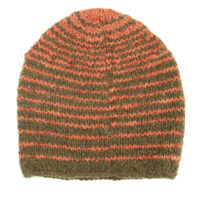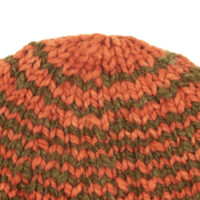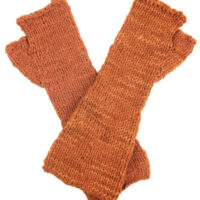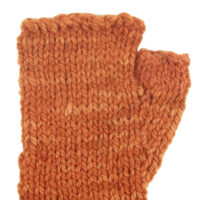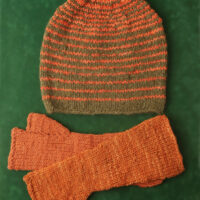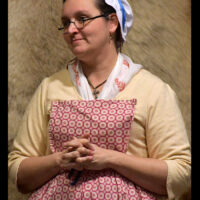Eighteenth Century Wool Cap and Mitts by Emily Burns
On the early frontier, utilizing every available resource was simply a way of life. Kentuckian William Clinkenbeard explained that buffalo wool was often mixed with nettle fibers to produce ready-made textiles. “The buffalo wool,” he would later write, “was the longest in the spring, and the longest we called the best. Yearlings and two-year-old’s had the best wool on. Made the buffalo wool into hats too.”
For this year’s CLF Fundraising Auction, artist Emily Burns has contributed a set of frontier mitts and hat that will work perfectly for your next cold-weather hunt, autumn black powder shoot, or 21st century shopping trip.
Burns started with raw materials, which consisted of buffalo wool and merino-targhee sheep wool. The artist dyed the sheep wool with period-appropriate madder, then spun the fibers on a reproduction spinning wheel. From the handcrafted merino-targhee wool she created a pair of fingerless mitts, perfect for handling your muzzleloader in the field. The cap was knitted from a mix of buffalo and sheep wool. “Of all the 18th century skills that I have learned,” says Burns, “this one is important because we all need to keep warm.”
For Burns, the CLA is an invaluable creative resource. “I appreciate the CLA,” says the artist, “because I learn so much every single time that I attend a show. I look forward to collaborating with the experienced and knowledgeable artists that belong to the association. This is knowledge that needs to be shared and continued on through the next generations.”
For more information on the work of Emily Burns, contact: emily.burns@yahoo.com
Text by Joshua Shepherd
Photography by David Wright


